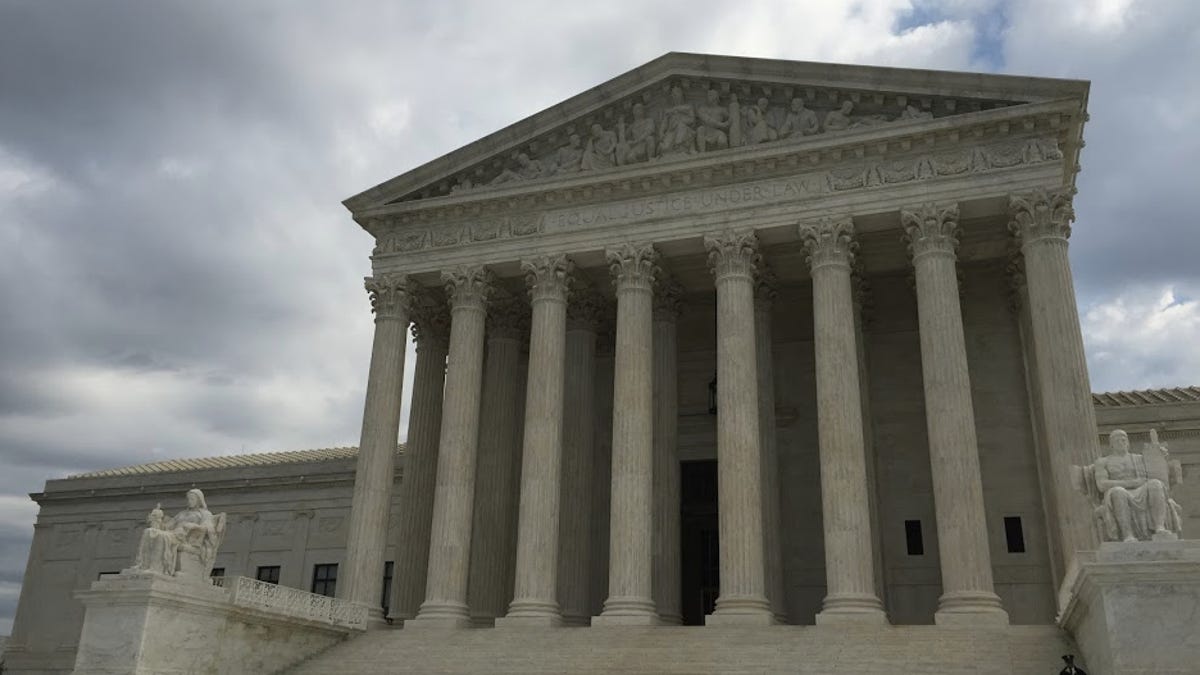AT&T may ask Supreme Court to strip FTC of authority to police net neutrality
If things play out in AT&T's favor, phone companies providing broadband or wireless internet services would be immune from government oversight.

U.S. Supreme Court in Washington, DC.
AT&T may ask the US Supreme Court to end a lawsuit filed by the Federal Trade Commission over the carrier's data throttling policies for unlimited plans.
In 2014, the FTC sued AT&T in the US District Court of Northern California, accusing the company of promising unlimited data service to customers and then slowing that service down to rates that were barely usable. The case hasn't yet gone to trial since AT&T is arguing that the FTC has no authority over any of AT&T's businesses.
The US Appeals court in Northern California rejected that argument in February and said the case could proceed. AT&T indicated in a status report submitted to the appeals court last week that it may petition the Supreme Court to stop the case.
The deadline to file its petition is May 29. AT&T said in its court update that it has no plans to extend that deadline. There is also a chance that AT&T may settle its case with the government. AT&T is asking that the case not move forward until the May 29 deadline and while settlement negotiations are ongoing.
This case and whether AT&T decides to appeal to the Supreme Court could have big implications for the future of the internet and whether there will be any cop on the beat ensuring that consumers are protected from big phone companies abusing their power online.
Why? Last year the Federal Communications Commission gave up its authority to police the internet when it repealed its net neutrality regulations. Instead, it said the FTC would be in charge of protecting consumers online.
Net neutrality is the idea that all traffic on the internet should be treated equally, regardless of whether you're checking Facebook, posting pictures to Instagram or streaming movies from Netflix or Amazon. It also means that companies like AT&T, which is trying to buy Time Warner, can't favor their own content over a competitor's content. While the FCC has voted to repeal the regulations, proponents are trying to keep it alive, including a Senate attempt to overrule the agency.
But there was just one hitch in the law that could have made it impossible for the FTC to oversee some of the biggest broadband companies. Many of these companies, like AT&T and Verizon, also operate traditional telephone networks, which are still regulated by the FCC . AT&T argues that because some aspects of its business, like its traditional phone services, are regulated by the FCC, the FTC doesn't have jurisdiction.
The judges on the federal appeals court disagreed and said the FTC can fill in oversight gaps when certain services, like broadband, aren't regulated by the FCC.
This ruling is crucial because FCC Chairman Ajit Pai's biggest argument for repealing the net neutrality rules was that the internet should be policed by the FTC and not the FCC. If AT&T were to appeal to the Supreme Court and if the court were to take the case and rule in AT&T's favor, it would mean that phone companies providing broadband or wireless internet services would be immune from government oversight. By contrast, cable companies, which do not operate traditional phone networks regulated by the FCC, would still be under the authority of the FTC.
All of this is still a long ways off. Even if AT&T were to file a petition with the Supreme Court, it's unlikely the court would take the case since it receives thousands of petitions per year, but only takes 80 cases per term.
Cambridge Analytica: Everything you need to know about Facebook's data mining scandal.
iHate: CNET looks at how intolerance is taking over the internet.

